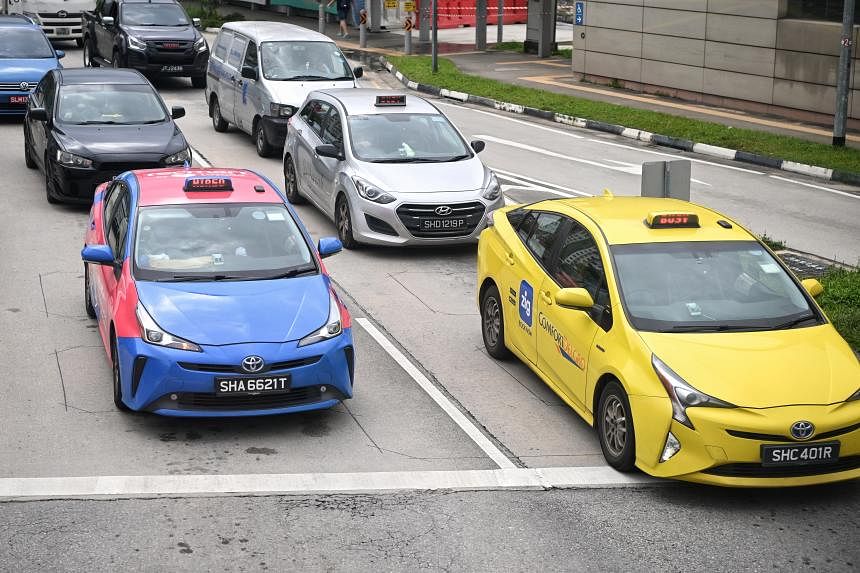SINGAPORE - Cabbies will be compensated for the downtime they incur from the installation of new on-board units (OBUs) in their vehicles for the satellite-based Electronic Road Pricing (ERP) system, Senior Minister of State for Transport Amy Khor said on Feb 7.
The Land Transport Authority (LTA) has been engaging taxi operators and the National Taxi Association (NTA) on the OBU installation exercise, and all four taxi firms have agreed to compensate their drivers via rental rebates when they send their vehicles into the workshop for this, Dr Khor told Parliament.
Private-hire cars, which are leased from car-rental companies or owned by drivers, will be scheduled for the OBU installation later.
LTA will engage the relevant parties, such as ride-hailing operators and the National Private Hire Vehicles Association (NPHVA), closer to the scheduled period, Dr Khor added.
An LTA spokesperson told The Straits Times that the authority is still engaging taxi companies on the OBU installation exercise for cabs, which is expected to start later in 2024.
Taxi firm Trans-Cab said it was unable to confirm the extent of compensation to be given to its cabbies, as installation of the new OBUs in its taxis has not begun.
Mr Neo Chee Yong, deputy general manager of motor group Prime, which operates Prime Taxi, declined to comment.
The Straits Times has also contacted taxi operators ComfortDelGro and Strides Premier about their OBU installation plans.
LTA had said the installation of the OBUs would be done in phases from November 2023, starting with about 20,000 fleet vehicles, which include public buses, fleet motorcycles and taxis. In all, nearly one million vehicles will be fitted with the new OBUs, in an exercise expected to conclude by the end of 2025.
All new vehicles will be fitted with the devices – comprising an antenna, a processing unit and a touch screen display – from the first quarter of 2024.
All other vehicles will have their existing in-vehicle units replaced in batches, based on the vehicle’s age.
Dr Khor was replying to Ms Yeo Wan Ling (Pasir Ris-Punggol GRC), who is the adviser to the NTA and NPHVA.
Ms Yeo also asked how long it takes to install the new OBU, how the Ministry of Transport will ensure wait times are minimised, and whether the ministry will work with rental firms to lower rent for private-hire car drivers when they send their vehicles in for the installation.
“For every hour of downtime, our taxi and private-hire drivers lose an hour of earnings,” Ms Yeo added, noting that there are more than 50,000 taxis and private-hire cars on the roads here.
In response, Dr Khor said some taxi operators plan to combine the installation of the OBUs with regular taxi maintenance and servicing schedules. Other operators are planning to recall taxis for the installation on days when workshops are free, which will minimise wait times for drivers.
She said the time taken to install the new OBU will vary, depending on the vehicle type and make, and the workshop will give an estimate after drivers make an appointment. She did not provide a range or more specific details.
The next-generation ERP system, or ERP 2.0, will replace the current 25-year-old cordon-based system, which is reaching the end of its operational lifespan. LTA had said the switchover to the satellite-based ERP system will be announced later, towards the end of the OBU installation exercise.


